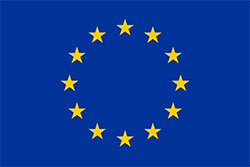An exciting February for equities and not so much for fixed income.
– S&P 500: +5.17%.
– MSCI Emerging Markets +4.8%.
– Stoxx 600 Europe: 1.84%.
– Bloomberg Global Aggregate (global fixed income index): -0,88%
Why is this?
It must be that human beings are naturally optimistic or have a free downside insurance called a central bank. By this, I do not mean that the market should fall, but an economy with a debt growth above economic growth is not healthy and therefore, at least we must be cautious. To give an example, the United States has grown by 53% in the last decade and its debt by 87%.
Equities are no longer focused on whether rates are going to fall or not, at least not in the short term. We believe the fundamental reason is the strength of the economy, especially in the US thanks to the latest manufacturing and services, employment, and consumer surveys. The central bank seems to have been able to contain inflation by raising rates and will therefore lower them sooner or later. In addition, liquidity in the financial system remains abundant and we have already seen that when there are problems, the central bank comes to the rescue.
The downside is what the Anglo-Saxons call “moral hazard” or “moral risk” (it refers to a situation where a person has less incentive to act with caution because he knows that he will be protected from negative consequences, he no longer assumes the full risk of his actions, so he becomes more prone to take risky decisions). In old English, it means, I take more risk than I should because I know that if I am wrong, the central bank will bail me out.
Fixed income fell because of rising yields due to the inflation rally. Historically, fixed income is less volatile than equities and reads between the lines better.
Debt, deficits, and inflation.
A few decades ago, some countries ran deficits and others ran surpluses, the latter financing the former. Who were the former? Developed countries whose currencies were considered strong, including the United States. The United States can get into debt because its currency is a world reserve and therefore will be bought (financed) as long as this strength is maintained. Today, other countries have already entered into a deficit, taking into account the fact that rates are very low, and not only developed countries but also emerging countries.
What is the limit to all this? For countries whose currency is valued worldwide (dollar and euro, for example) the confidence in these countries, the rest, hyperinflation if they continue on this path.
This tool in the hands of politicians is very dangerous because there is a perverse incentive to spend to win the elections and since their position is not perpetual, whoever comes after them will solve the situation. So, is it being squandered? If debt is growing above economic growth, there is reasonable doubt. The problem is that, if the debt is not prepaid with the revenues generated, other alternatives will be sought, raising taxes? As Benjamin Franklin said, “There are only two things certain, death and taxes”.
The problem with excessive public spending (if you can call it that) is that this money competes with the private sector in the purchase of goods and services and therefore either crowds it out (crowding out effect) or pushes prices upwards putting pressure on inflation.
My conclusion would be that inflation is not entirely under control, although it has moderated a lot. I believe that we should not give up the battle and continue to be prudent.
You can access the previous month’s market commentary here.








